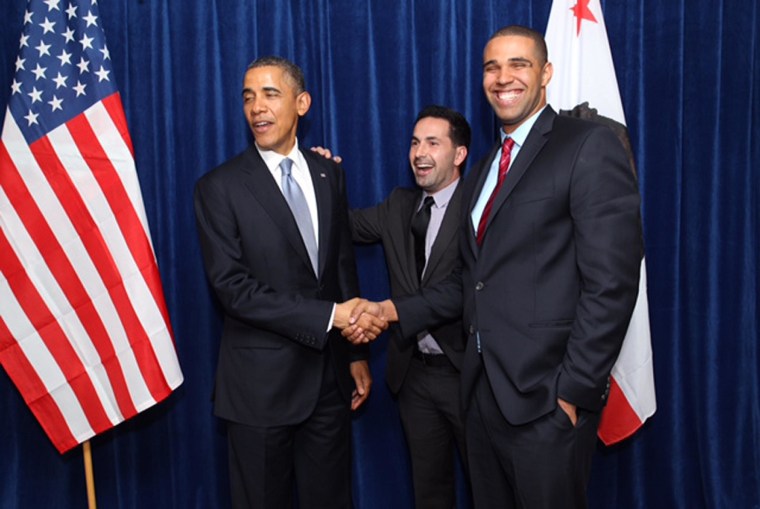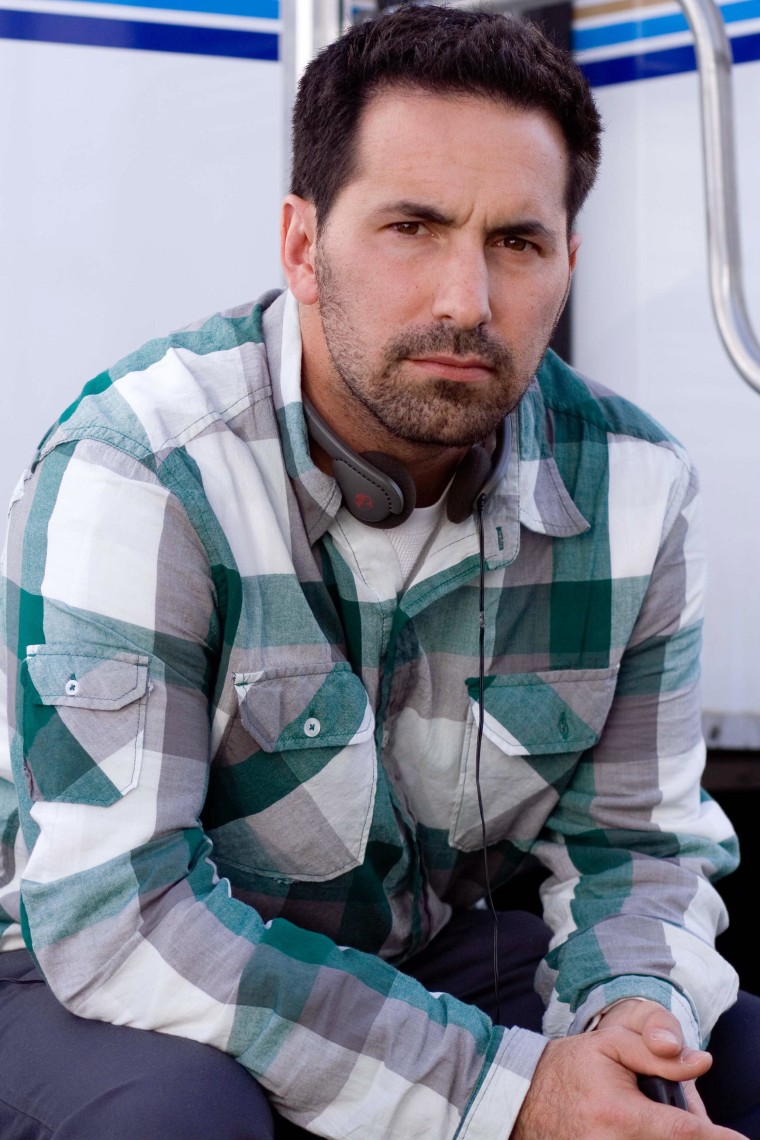As a Hollywood movie producer, Scott Budnick has had the kind of career film students sit in class and dream about. He worked his way up through the Hollywood ranks from lowly casting assistant to Executive Vice President of director Todd Philips’ production company, Green Hat Films. And in the course of his career, he has worked on comedies including “Old School” and “Due Date,” and executive produced the global, billion dollar plus, blockbuster comedy franchise otherwise known as “The Hangover” movies.
But that’s only part of the Budnick story. The rest is about a passion for juvenile justice, a passion first sparked while researching a murder case for a movie, that grew into a deep and enduring commitment which would find him working one-on-one with young offenders in juvenile hall: mentoring them, supporting them, and advocating for them.
And so, Budnick, took a bow on the Hollywood stage, hanging up his Green Hat at the end of last year and resolving to focus on his juvenile justice work full-time.
He is now about to celebrate the one year anniversary of his fledgling nonprofit, the Anti-Recidivism Coalition (ARC), a group dedicated to reducing incarceration and supporting those who have been incarcerated.
When asked what the group’s greatest achievement to date is, Budnick points to the passage of California Senate Bill 260, which passed in September of last year and guarantees that offenders who received long sentences as juveniles have the opportunity to be considered for parole.
“Our members were in the capital every week for six months advocating for that piece of legislation,” says Budnick.
“It was not a bill which should have gotten any bipartisan support but we had our members, who are all formerly incarcerated young men and women who are in college and universities and major careers doing incredible things, come to the capital every week in their coats and ties and sit down with Republicans and moderate Democrats.”
Their personal example would prove powerful and the bill passed easily. Now, the ARC is widening its focus to work on creating vital support systems to assist those returning from incarceration as they assimilate back into society.
Here, Budnick expands on those efforts, explains how “12 Years A Slave” influenced his decision to devote himself full-time to his social justice work, and reflects upon the powerful example of Prophet Walker, a young offender Budnick helped, who now, at just 26 years-old, is running for the California Assembly.
How has your Hollywood background helped or hindered you in your work with officials and legislators?
I think it helps in terms of getting in the door but then when you want to discuss specifics of policy, they don’t think you’re a criminal justice guy, they think you’re a Hollywood guy. So it takes time to actually show that you know something, that you know best practices, and that you have a background in the criminal justice field, which I’ve been doing for 12 years. I also realized that I can get in the door but it’s the kids themselves, the young men and women, who are the best spokespeople in those rooms.
When did you realize you wanted to transition away from film producing and commit to this work full time?
I would say when I saw “12 Years A Slave.” I was so blown away by that movie and I also saw how that movie affected people in my own family who came from the South. That’s when I realized I wanted to focus on this work full time, but if I’m making movies, which I’m still going to do, I want to focus on films around the issues of race and poverty and all the myriad issues which surround those issues.
What is the Anti-Recidivism Coalition’s priority moving forward?
I really think having our young men and women affect policy and laws is half the organization, but the other half is where our focus is right now, and that is to support young men and women who are currently coming home from incarceration by focusing on the support services they need to be healthy, successful individuals and train them in doing the policy work.
Our two major initiatives that we’re entering into right now is number one, partnering with community colleges and universities to find housing close to campus to house ARC members together in a support group in housing with supportive services. So, it’s them having their own apartment but actually having support services on site.
The second part of the initiative is trauma therapy. To have therapists on site to help them deal with their issues, the violence they experienced as young people, the physical and sexual abuse they experienced as young people, and the trauma they were exposed to in the prison system.
So, we help them with jobs, we help them with housing, we help them with school, but we also help them get past any underlying issues that might be still affecting them, and that’s our focus for the future.
You had a very different upbringing from the juveniles you work with. Why do you think you’ve been able to connect with them so effectively?
I really believe that a child is a child is a child, whether they grow up in poverty or grow up with resources. No one is immune to the effects of drugs, the effects of poor parenting, the effects of abuse.
I really believe that a child is a child is a child, whether they grow up in poverty or grow up with resources.
So, to me a child is a child no matter where they are. I have a heart for them. And I’ve always felt like I’m good at communicating with young people, and to be honest they fuel me even more than I fuel them in terms of keeping me excited and committed to this work.
Prophet Walker, who was a juvenile offender you helped, is now campaigning for a state Assembly seat. Did you have any inkling when you first met him that he was capable of such a radical turnaround?
I think the thing that was clear when I met him when he was 16 or 17 years old in juvenile hall was, number one, he wasn’t a conformist, he was someone who very much carved his own path. So, in that environment, where it’s very easy to just follow the herd, he was a real leader. That was definitely a sign that he was special.

And he had an incredible drive and that was something that I knew would lead him really well in the future. But he’s taken it to a whole other level. When he was in prison he was literally calling me collect every day making sure I was following up with the different universities on his applications. He was just an expert at advocating from himself. Because he knew he could mail the applications in from prison but he couldn’t call them collect to follow-up on them. He was really great at knowing how to work together with the people around him who wanted to see him succeed in getting there.
So, there were signs throughout, but in terms of him getting a job six months out of prison making $110 an hour to build a hospital in Santa Monica, I mean who’s ever heard of that? And then the work he’s been doing in Watts with the community and the redevelopment of the projects; running for State Assembly and out fundraising his competition the last two periods, just firing up the community. I mean who could ever expect any those things? That’s just on a whole other level of unbelievable.
A recent study showed that 40% of white males and 49% of African American males have been arrested by age 23. What do you think that statistic tells us?
I really believe, in terms of the young people I’ve worked with, so much of it is about identity. In the black and hispanic cultures especially, it’s not quite as normal to open up, to express yourself, to cry, so a lot of it is very much internalized.
I think the more we can work with these men on putting incredible male role models in front of them to show what a real man is, the more we can see young men going to college and graduating...
I think the more we can work with these men on putting incredible male role models in front of them to show what a real man is, the more we can see young men going to college and graduating -- most of the young people I work with are the first person in their family to go to college and graduate -- to set those examples for the cousins and nieces and nephews that are following. So many of the kids that I work with say, “Well, I grew up in the hood I didn’t know a black doctor or a hispanic lawyer.” They’ve never seen that type of success from their community.
They’re the first in their families achieving at this level and showing everybody in the family what’s possible.
With ARC we have 160 members right now who are those role models. Probably 120 of them are men who came from those impoverished communities who used to say that they never had those role models and now they are the role models. They’re the first in their families achieving at this level and showing everybody in the family what’s possible. And really, you see it begin to take shape and others be able to start to pay it forward.
California is having to work to reduce its prison population because of overcrowding. Is that providing an unusual window of opportunity to achieve change?
In the last ten years research has played a key role, because the research has showed overwhelmingly that incarcerating young people should be the absolute last option after every other option is exhausted. Because all the research shows that for the most part it makes young people worse. It does not help.
We in California have gotten to the point of incarceration very quickly. We love to incarcerate. So, the fact that people are talking about this, looking at this, the fact that the courts have forced hands to reduce the prison population.
When I started in the juvenile halls there were 325 kids at any time being tried as adults, that was ten years ago, today there are 63.
I mean, when I started in the juvenile halls there were 325 kids at any time being tried as adults, that was ten years ago, today there are 63. So the crime rate has gone way down, but also people have adapted to the research and realized that the last thing we want to do is incarcerate folks, and people are really starting to pay attention to this.
What do your colleagues in Hollywood make of you changing lanes like this?
I think for the most part they find it pretty interesting. A lot of people want to get involved, a lot of people have come to juvenile hall to class with me. I’m taking a lot more in the next few weeks and months. So, it’s been really, really interesting seeing how excited they get when they get close to the issue.
For more information and inspiration visit MariaShriver.com
